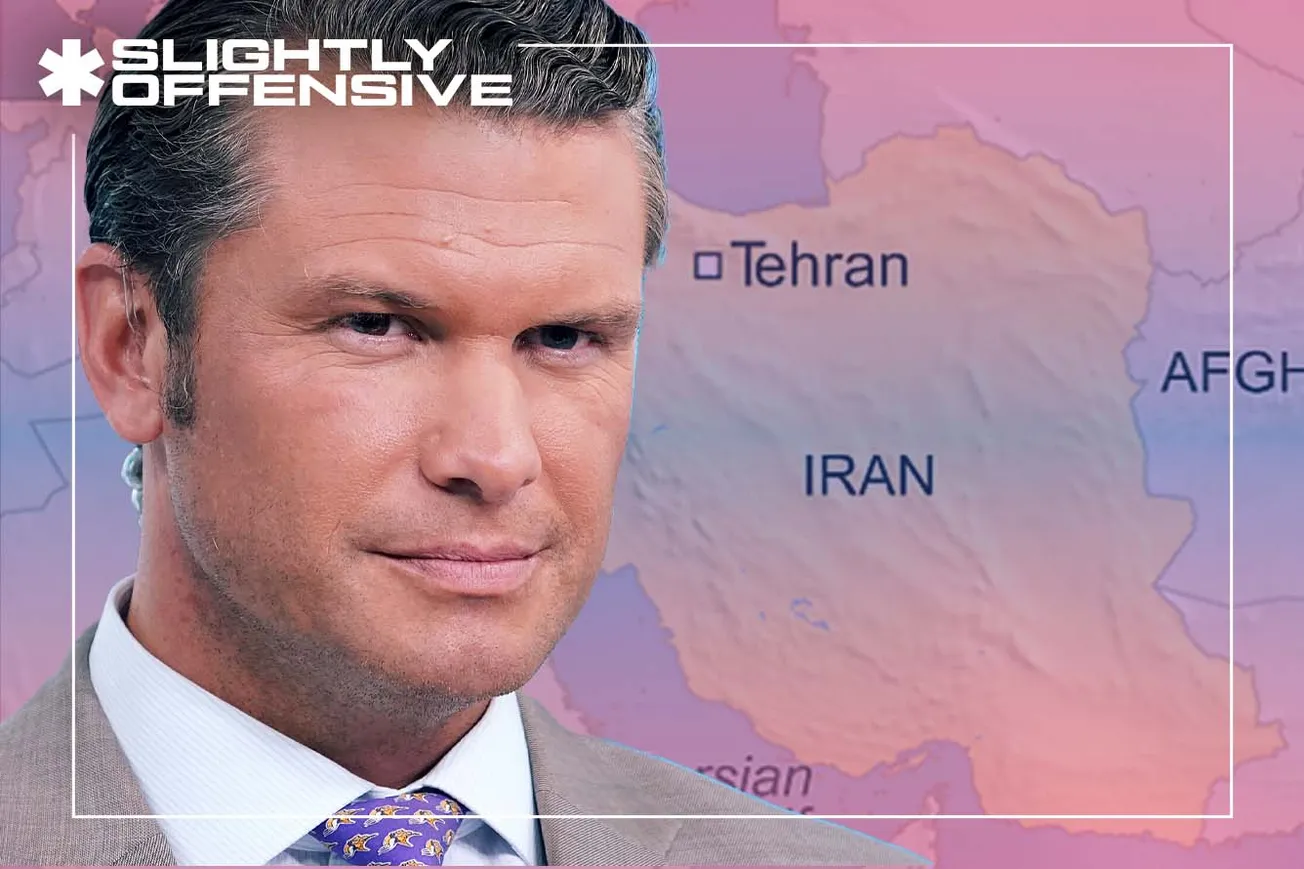The prospect of a war with Iran has been around since the Islamic Revolution of 1979, and, considering that the U.S. and Iran have been staunch adversaries for almost half a century, it’s not a momentous development. But a check of word repetition in books shows that, lately, there’s been renewed discussion about the U.S. going to war with Iran.
Whether it’s political leaders pushing for action or certain interest groups lobbying for military intervention, it’s easy to get caught up in the noise. But before jumping into another Middle Eastern conflict, let’s take a step back and ask: Is this really something we should be doing?
Some people say it’s necessary to protect American interests and secure peace in the Middle East. Others argue it’s not worth the cost. So, what’s really going on? Why is this talk of war heating up, and should we actually be pursuing it? Let’s break it down in simple terms.
A Brief History: U.S. – Iran Relations
The relationship between the U.S. and Iran has been rocky for a long time. Back in 1953, the CIA helped overthrow Iran’s leader, Prime Minister Mohammad Mossadegh, after he nationalized the country’s oil industry, which put America’s interests at risk. This led to decades of resentment. Fast-forward to 1979, when the Islamic Revolution took place, and Iran became a clear, outright opponent of the United States. The U.S. embassy was seized, and American diplomats were held hostage for over a year.
The U.S. broke off diplomatic ties and labeled Iran an enemy. Since then, Iran has been a thorn in the side of American foreign policy, especially because of a suspected nuclear program and its participation in proxy wars throughout the Middle East.
But while this history is complicated, it’s important to remember that things can change. We’ve seen in the past that diplomacy—not war—can bring results. So, what’s the case for and against military action?
Iran has launched a massive ballistic missile attack on Israel. Join me now for live analysis of the potential U.S. and Israeli response and the far-reaching consequences of this escalating conflict. https://t.co/aYc0Q0H0EX
— Ben Shapiro (@benshapiro) October 1, 2024
What Are the Reasons to go to War with Iran?
We’ll play the devil's advocate. Hypothetically, there could be a few reasons why pushing for military action against Iran might be strategic for U.S. interests. Let’s take a closer look at them:
National Security
The primary reason to go to war with Iran is to protect America’s national security. Iran’s influence in the Middle East, especially through its support of militant groups, is not exactly a direct threat. But if Iran finally developers nuclear weapons, it could change the balance of power in the region and beyond.
Israel’s Security
Israel has always been a close ally of the United States, and it views Iran as a major threat to its safety. Iran’s support for terrorist groups that attack Israel and its calls to destroy the Jewish state make Israel’s leadership very worried. In fact, Israeli officials have floated the idea of a stronger U.S. stance against Iran, even if that means military intervention.
The Military–Industrial Complex
Defense contractors and military interests often profit from war. The defense industry has a long history of pushing for military intervention, and it’s one reason why some interest groups may lean toward supporting a conflict with Iran. More war means more weapons, more defense contracts, and more revenue for this lucrative sector.
Geopolitical Influence
Some commentators argue that the U.S. needs to maintain control in the Middle East to make certain that we don’t lose influence to countries like China and Russia. A stronger U.S. presence in the region is seen as a way to counterbalance Iran’s position.
The Case Against War with Iran
It’s important to think about what a war with Iran would really mean for America and the world. Here’s why we should think twice:
The Cost of War
Taxpayers don’t need to be spending trillions on another war. The Iraq and Afghanistan wars cost the U.S. about $8 trillion. That’s money that could go into rebuilding America, securing the country’s borders, and strengthening the economy. Why throw it away on a war that has no clear end? The American people are tired of endless wars, especially when they have so many issues to address right here at home. The Soviet Union even bankrupted to the point of disappearing, in part due to its invasion of Afghanistan. The U.S. doesn’t have to go down that route.
This, of course, doesn’t even contemplate the lives that would be lost—and the families that would be wrecked—because of a conflict far away from American households. That’s the primary cost of a war, and the one that requires the fewest remarks.
The Risk of Escalation
Iran is no pushover. With a population of over 80 million people and a well-equipped military, Iran would not be an easy target. A full-scale war thousands of miles away from home could drag on for years and lead to major American casualties. And if other countries like Russia or China get involved, the conflict could quickly spiral out of control, which would make it much worse than a regional problem.
More Volatility in the Middle East
The Middle East is already a powder keg. From Syria to Yemen, the region is filled with conflict and chaos. If the U.S. attacks Iran, it could destabilize the region even further and cause more violence and suffering for innocent people. This could lead to more terrorism and even larger refugee crises, and make the global situation even more difficult to manage.
A Better Way—Diplomacy
President Trump’s decision to withdraw from the Iran nuclear deal (JCPOA) was controversial, but it also showed the power of tough diplomacy. Rather than rushing into another war, we should continue to put pressure on Iran through sanctions and diplomatic negotiations. This can limit Iran’s nuclear ambitions and contain its support for terrorism without the cost of war.
Focusing on American Priorities
America has its own challenges to face. Our economy needs respite, our borders need attention, and our infrastructure is aging. War with Iran would take away attention from these important domestic issues, cost American taxpayers billions, and pull resources away from the things that matter most to Americans.
Iran was contained, deterred and increasingly isolated by the burgeoning Sunni-Israeli alliance while Trump was president. Iran is unconstrained and aggressively threatening American assets and allies all over the region under Biden-Harris. That is not a coincidence.
— Ben Shapiro (@benshapiro) August 5, 2024
Who’s Standing Against the War?
Thankfully, decision-makers in Washington are not pushing for war with Iran. There are strong voices—especially from conservative leaders—who are saying, “enough is enough” with the extravagant expenditure of war. People like Senator Rand Paul and Representative Thomas Massie are standing up and making it clear: America’s priority should be protecting Americans, not getting tangled up in another conflict halfway across the globe.
These leaders believe in putting our country first. Why send our troops and resources to fight in the Middle East when we’ve got real problems right here at home? They believe that focusing on American interests is how we keep our nation safe and strong.
And you don’t need to be from one side or the other to agree with them. Many lawmakers are waking up to the fact that endless wars don’t make us safer. They drain our resources, cost lives, and pull our attention away from what really matters: Protecting America and its future. This is about common sense, not party lines.
Work with Israel? Excuse me, the Constitution requires you to work with Congress!
— Thomas Massie (@RepThomasMassie) October 1, 2024
“We have made clear that there will be consequences, severe consequences, for this <Iranian missile> attack <on Israel> and we will work with Israel to make that the case.”pic.twitter.com/WlGx2vxFfA
The Bottom Line: War with Iran Isn’t the Answer
At the end of the day, we have to ask ourselves: Is another war with Iran really what’s best for America? The risks are clear—massive casualties, potential bankruptcy, more instability in the Middle East, and the possibility of an international meltdown.
But here’s the thing: We don’t need war to protect American interests. Economic sanctions and smart diplomacy have already proven they can pressure Iran without a single American soldier being put in harm’s way. We can keep Iran in check and protect American interests without sacrificing American lives.
We’ve been down this road before, and we know how it ends. Let’s learn from the past and make a better choice this time. It’s time to put America first—focus on our economy, our security, and our future instead of chasing another war halfway across the world.
So, when the conversation comes up again, remember this: War with Iran? Not worth it.
Please leave your opinions / comments on these stories below, we appreciate your perspective!








Conversation